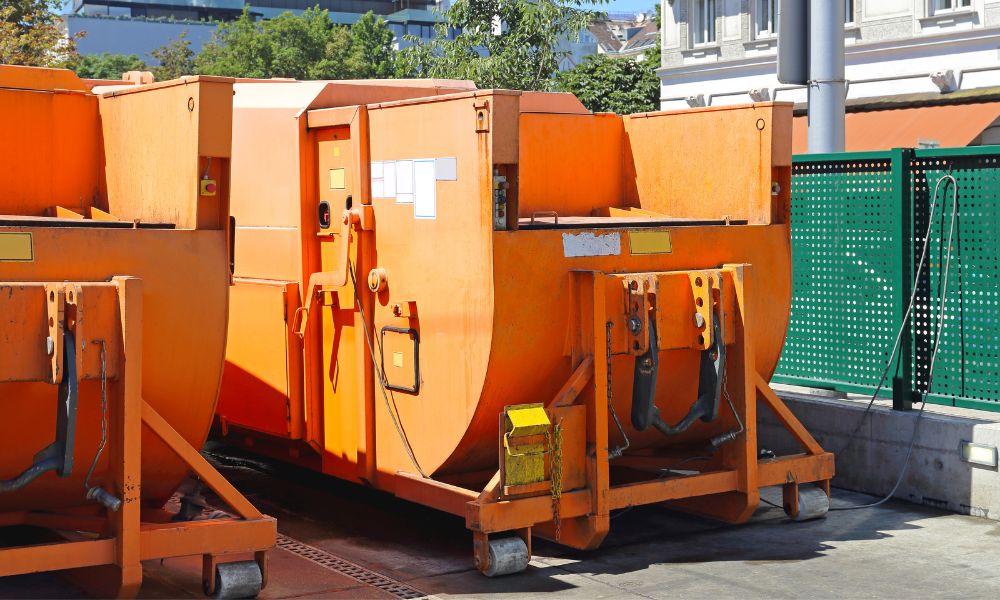Introduction to Waste Compactors
In today’s world, businesses are increasingly held accountable for their environmental impact, prioritizing effective waste management. One tool that has gained significant traction in improving waste management is the commercial waste compactors. These machines compress waste at its source, minimizing the volume and space occupied by the waste, and they also streamline the entire disposal process. By adopting compactors, businesses can handle waste more efficiently, contributing positively to their sustainability goals while meeting regulatory requirements.
The global push towards sustainable practices means many businesses seek practical and impactful solutions. By incorporating waste compactors into their waste management strategies, companies can comply with environmental standards and enhance their corporate responsibility. This shift towards sustainable waste disposal practices is becoming increasingly critical as regulations tighten and consumer consciousness grows.
Reducing Environmental Footprint
Trash compactors have a vital function in minimizing the impact on the environment. Compacting waste reduces the amount of garbage in landfills, decreasing harmful gas emissions from waste decomposition. Compacted trash requires less room in garbage dumps. This doesn’t just extend the operational life of these sites but reduces the number of new landfills being created, which has a significant ecological impact.
Moreover, with landfill space becoming increasingly scarce, especially in dense urban areas, the ability to reduce the volume of waste via compaction can have profound long-term benefits. Reducing waste not only conserves space but also reduces the need for new landfills, which can disrupt local ecosystems. These advantages make waste compactors attractive solutions for environmentally-conscious businesses trying to optimize their waste management.
Enhancing Operational Efficiency
Another striking benefit of waste compactors is their notable operational efficiency improvement. By significantly reducing the bulk of waste, commercial entities can often decrease the frequency of waste pickups. This translates into direct time savings and reduced operational disruptions. Employees are no longer bogged down with the frequent handling and management of waste, allowing them to dedicate more time and resources to primary business activities.
For large businesses, waste accumulation represents both a logistical and environmental challenge. Streamlined waste management processes facilitated by compactors mitigate these challenges and enhance overall productivity. Businesses can bolster their operational frameworks by optimizing waste flow, ensuring both efficiency and sustainability.
Cost-Saving Advantages
The financial benefits of implementing commercial waste compactors cannot be overstated. By tangibly reducing waste volume, businesses cut down on the required waste collections. This reduces transportation and disposal expenses, which can make up a significant part of total waste management costs. Additionally, businesses could become eligible for lower fees for bulk waste disposal by improving their processes. These cost savings can then be reinvested into other productive areas of the company, further aligning operations with financial goals. For businesses of all sizes, reducing waste-related expenses can markedly improve the bottom line, offering tangible proof of the return on investment provided by waste compactors.
Improving Space Management
Space management is an often overlooked yet critical aspect of business operations, particularly in urban environments where real estate is at a premium. By drastically decreasing the volume of waste, compactors enable businesses to reclaim valuable space that can be repurposed for operational enhancement rather than merely storing waste. This efficient use of space can lead to improved workflow and an optimized working environment.
Applying additional space to increase inventory capacity or enhance customer-facing areas offers substantial advantages. Reclaiming space not only aids in operational enhancement but also contributes to a more organized and professional setting, which resonates well with employees and clients.
Boosting Health and Safety Standards
Cleanliness is an essential aspect of a safe work environment, and waste compactors play a crucial role in achieving this objective. Compactors prevent potential health risks by reducing loose trash and minimizing the attraction to pests. This is especially advantageous for industries like hospitality and food service, where upholding strict health and safety measures impacts operations and customer contentment.
In industries where health inspections are commonplace, deploying waste compactors ensures that businesses remain compliant with safety standards. Thus, compactors enhance the operational environment and safeguard businesses from potential breaches and reputational harm.
Overcoming Common Challenges
While waste compactors offer numerous benefits, businesses must be prepared to address specific challenges. These include the need for regular maintenance and a baseline level of technical knowledge required for efficient operation. Proactively tackling these challenges through employee training and routine maintenance schedules can ensure optimal performance and longevity of the equipment.
Moreover, understanding how to leverage compactors’ full capabilities can provide businesses with a significant edge in waste management. By overcoming these hurdles, enterprises can substantially leverage compactors to reduce waste handling concerns and achieve lasting positive impacts on their waste management strategies.
Future of Waste Management
Incorporating innovative technology and data analysis into waste compactors is not only a new idea but a crucial step for the future of waste management. According to a recent report, the popularity of intelligent compactors with real-time data and predictive maintenance features is increasing, leading to a more efficient waste management process. These technological advancements will enable businesses to proactively tackle problems, maximize compactor utilization, and minimize periods of inactivity.







